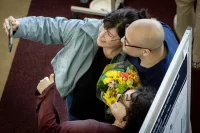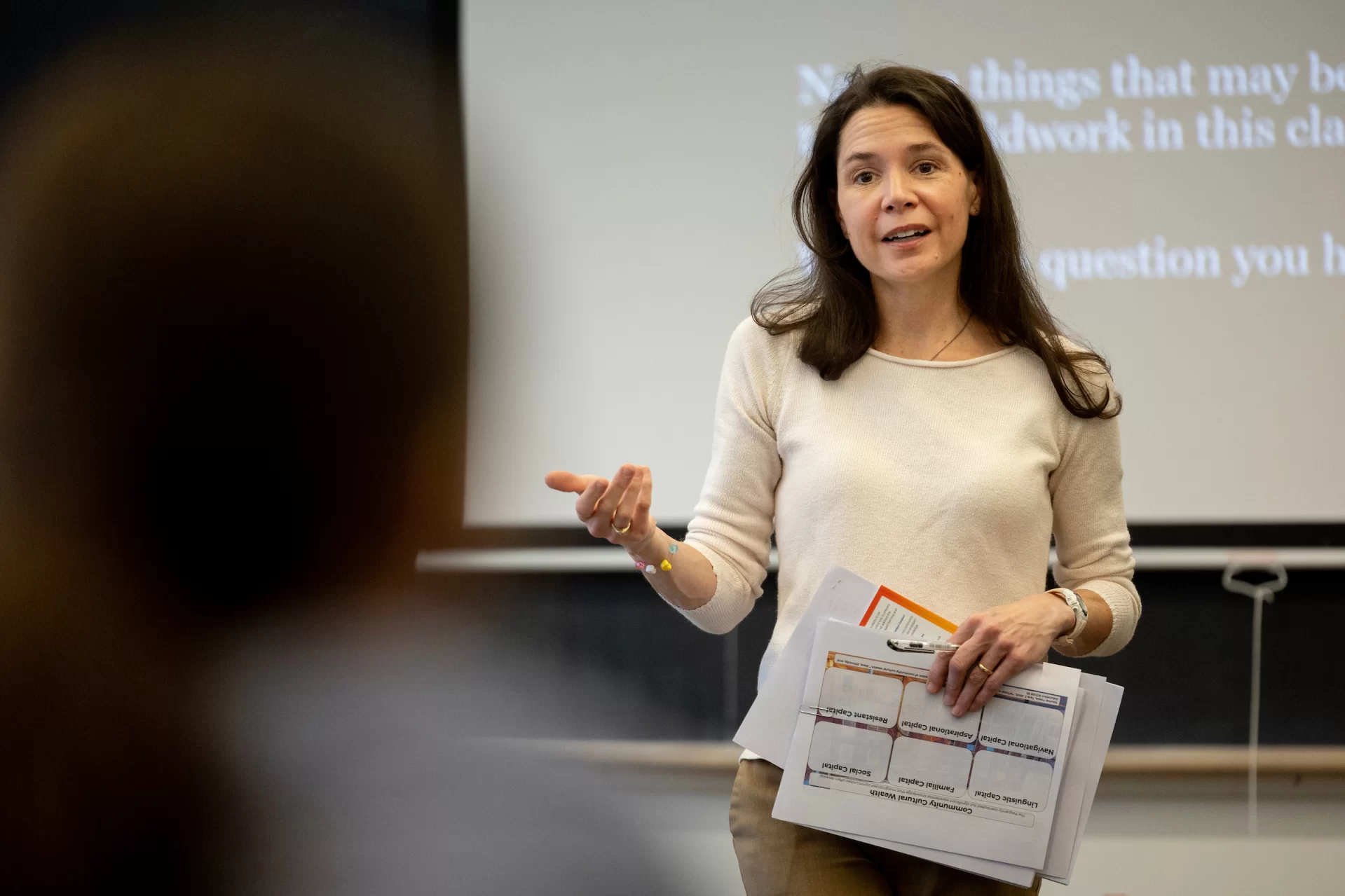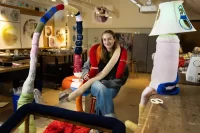British debaters launch 75th anniversary tour at Bates
“This house believes that the monarchy should be buried with Diana” will be argued by the British Debate Team and Bates College debaters at 4 p.m., Sept. 20, in the Olin Arts Center Concert Hall, 75 Russell St. The public is invited to attend free of charge.
In celebration of the 75th anniversary of the first British intercollegiate debating tour of the United States when three members of the Oxford Union launched their expedition at Bates College, the British national team will return to compete against Bates, kicking off a nationwide tour.
Beginning in the 1960s, according to Robert Branham, associate professor of rhetoric and debate coach at Bates, Americans began to participate in free, extemporaneous debate, and within the last five years, the British style of parliamentary debate has become the most popular form in the United States. “They’re truly public debates rather than technical ones,” Branham said. “They tend to be more lively, with heckling from the audience.”
On Sept. 27, 1922, Bates debaters Arthur Pollister ’24 of Turner, William Young ’24 of Lewiston and Erwin Canham ’25 of Auburn defeated Oxford University in a match staged before a crowd of 2,500 at Lewiston City Hall. The two teams debated the proposition: “Resolved, that the United States should at once join the League of Nations.” Oxford took the affirmative and Bates argued the negative side.
Speaker of the House for this year’s contest will be Charles Radcliff ’50, who was a member of the first U.S. national debating team. Bates senior Liam D. Clarke of Grand Rapids, Minn., president of the student government and the debate council, will debate for Bates with senior Jennifer V. Clark of Mexico City, a vice president of the debate council who spent her junior year abroad at University College in London.
Following the Bates debate, the British team, represented by Dan Neidle, 24, and Andrea Sloan, 22, will continue their two-month tour throughout the United States, including stops in Boston, New York and California. A law student at the College of Law in London, Neidle will begin work as a corporate lawyer in February. He won the national school’s debating championship at age 17 and has competed successfully in national and international university debates.
Sloan, a resident of Scotland, has just finished her fifth year of law at the University of Strathclyde, where she has participated in many debate tournaments in the United Kingdom and Ireland, including three world championships.
“Bates and British debaters have enjoyed a unique and enduring debating relationship,” said Branham. Bates, under the tutelage of Craig Baird, visited Oxford for the first intercontinental collegiate debate in 1921 and debated British teams more than a dozen additional times before World War II.
After the war, Bates was the first U.S. school to resume international debate tours of Britain. Three Bates students have been selected as members of the U.S. national debating teams that have toured Great Britain, including both the first tour in 1950 and the most recent tour in 1997. Bates teams now compete in British tournaments each year.
In the first years of competition, “neither side thought a lot of the other’s way of doing things,” Branham said. “The British regarded the Americans as too lawyerly and technical in their analysis. The Americans, in turn, regarded the British as too frivolous and understated.”


